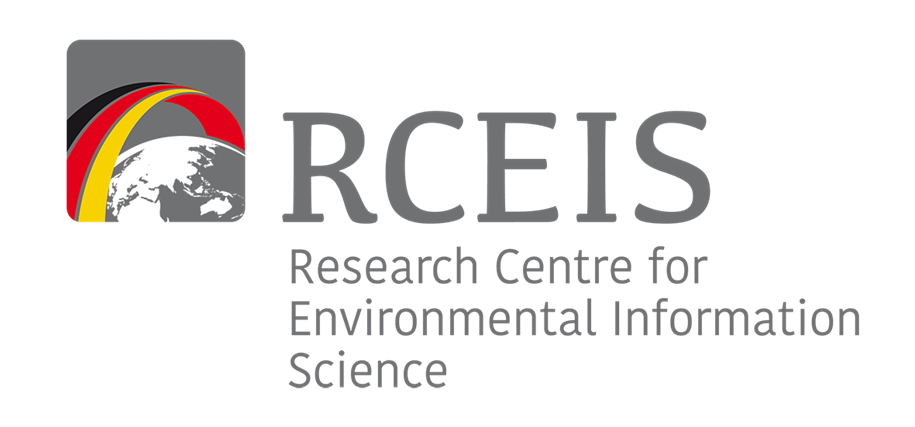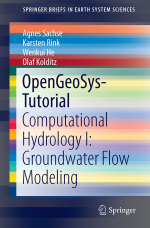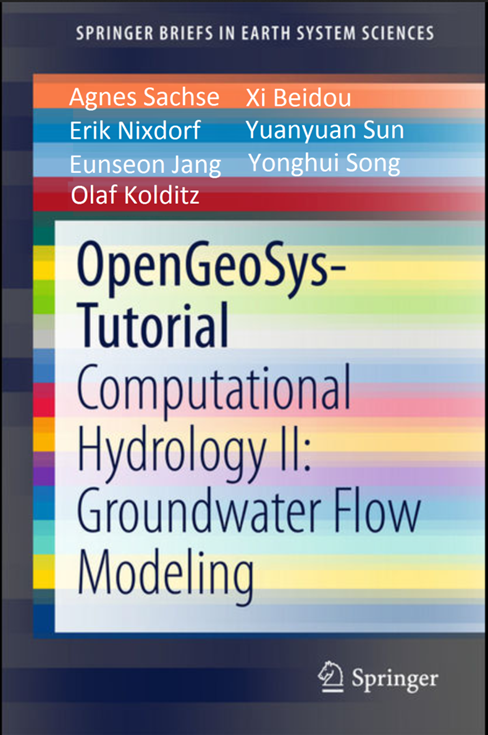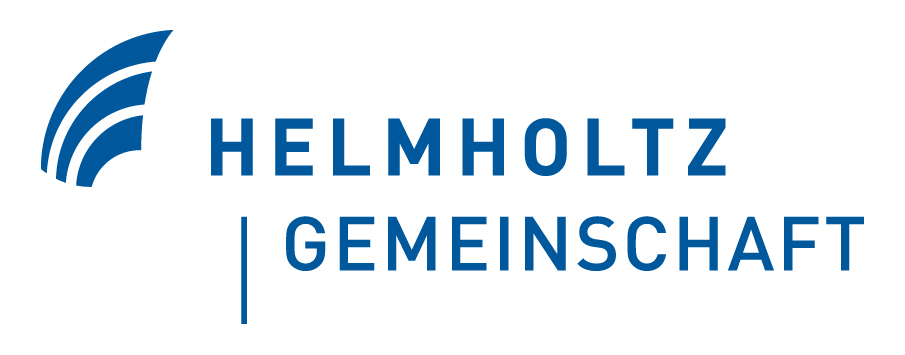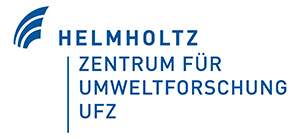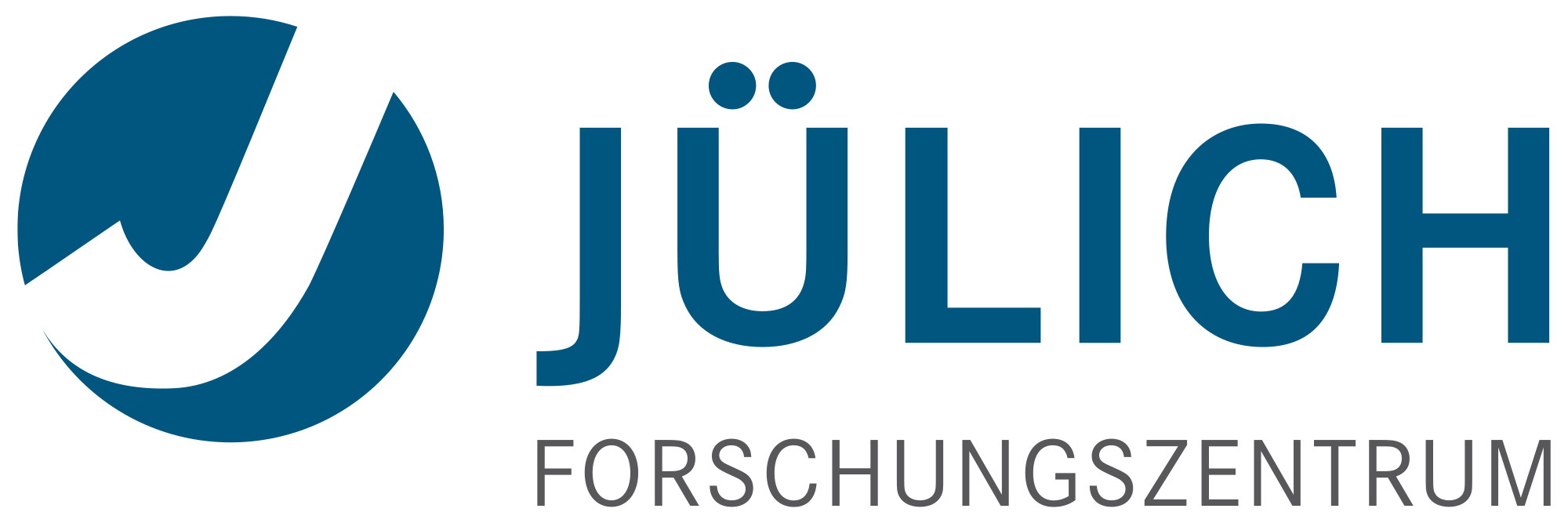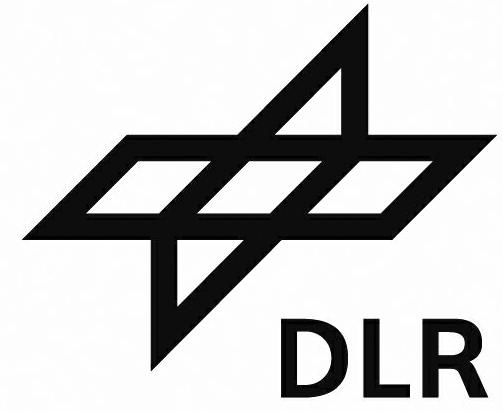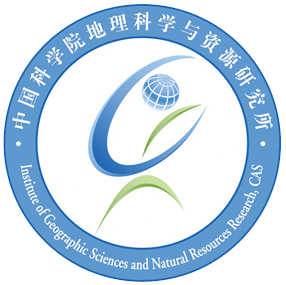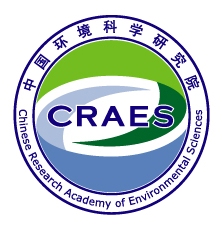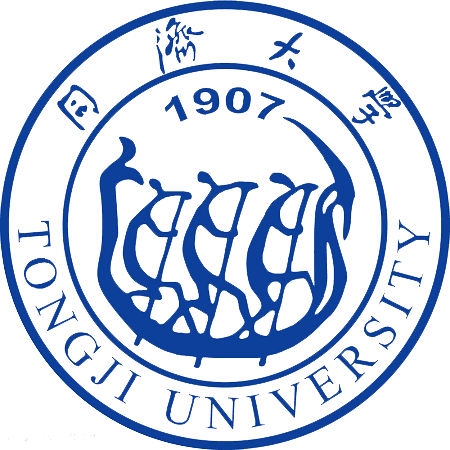On 29.01 - 07.02.2018, the winter school within the project of the Sino-German cooperation group “A modelling platform prototype for environmental system dynamics”
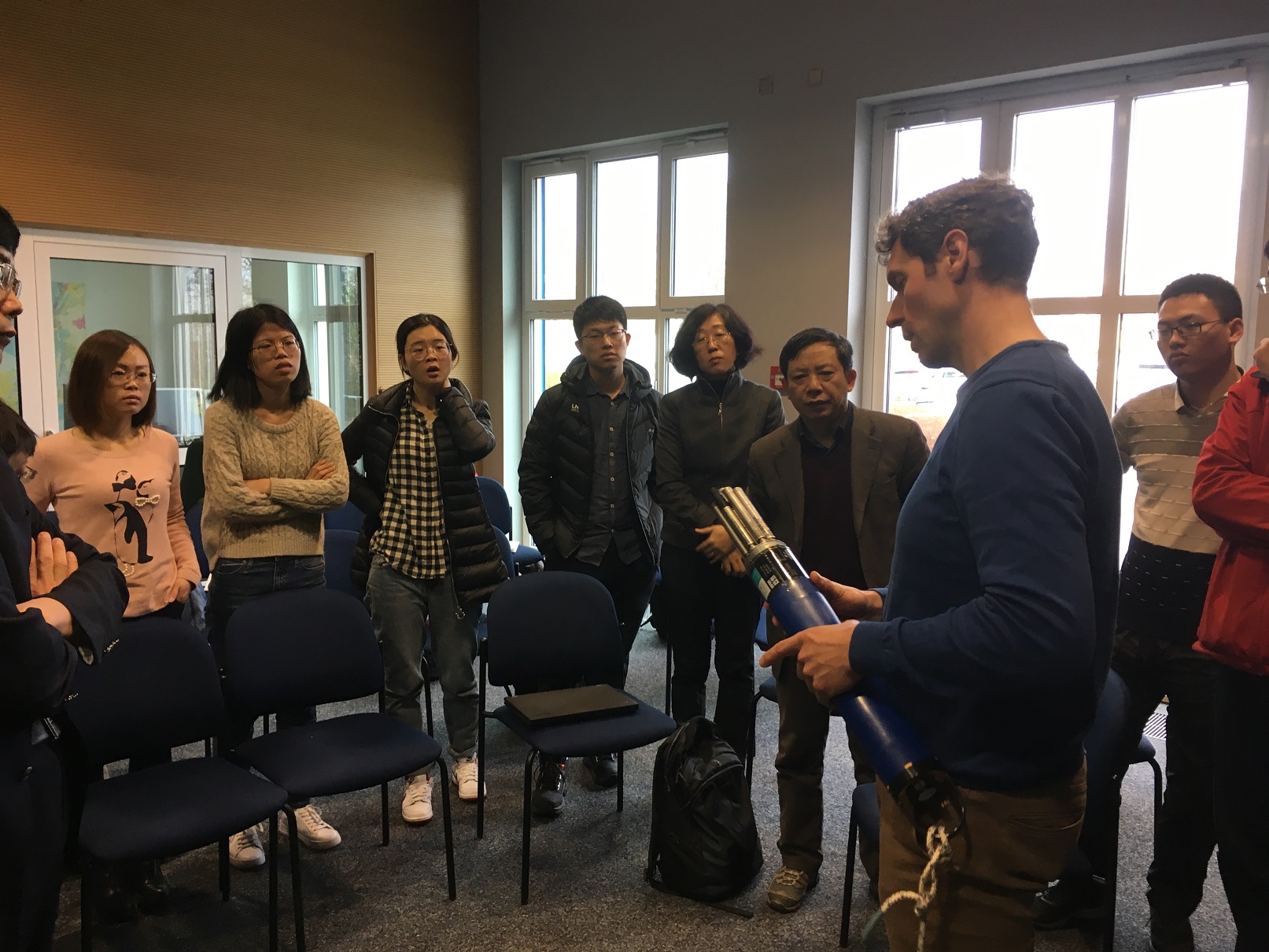
Fig 1:practical presentation of lake monitoring equipment
From 28.01.2018 until 07.02.2018, the winter school within the project of the Sino-German cooperation group “A modelling platform prototype for environmental system dynamics” has successfully taken place in Germany. A group of more than 20 young and senior scientists from China and Germany have made a study tour starting from Leipzig, and then to Potsdam, Dresden and to the last station in Freising. The winter school brought the Chinese and German scientists together to build a Sino-German research network in the field of environmental informatics, hydrology, climatology and remote sensing. 10 Chinese young scientists (including 3 Chinese Lecturers) and 10 German young scientists (including lecturers) have joined the winter school. From 29.01. to 31.01., the group visited the first station at Helmholtz Centre for Environmental Research in Leipzig (UFZ). On the first day, the major topics of the lectures were about the Environmental Information System (EIS) – OpenGeoSys and its tutorials in detail (www.opengeosys.org). 3-D visualization of Chao Lake EIS within the ongoing Sino-German Project “Urban Catchments” was demonstrated in the visualization centre VISLAB. A Book project about China Water System II – Poyang Lake was also introduced. The book will summarize the achievements of the cooperation group. On the second day, diverse topics were presented by lecturers from UFZ. The topics included the in-stream nutrient process using novel sensor technologies; optimizing trade-offs between ecosystem services and biodiversity and integrating microbial interactions into freshwater ecology research. On the third day, lake/reservoir monitoring and modelling, as well as the practical presentation of different monitoring equipment were introduced (Fig. 1). Very interesting topic in the last part at UFZ is about the systems thinking and mental simulation. During the course, the participants needed to solve several questions related to system thinking and the results would also be compared with other students with different academic levels. The second station of the winter school was Potsdam Institute for Climate Impact Research (PIK) on 01.02.2018. The topics were about the global land-use, grassland and permafrost modeling in the context of climate change. The third station was at Technische Universität Dresden (TUD) on 02.02.2018. The Institutes of Hydrobiology and Groundwater Management gave an overall introduction about the university and the CAWR (Centre for Advanced Water Research), a joint centre between UFZ and TUD (www.ufz.de/cawr). The topics at TUD consisted of antibiotics and antibiotic resistances in the aquatic environment; biomonitoring - an integrative approach to assess water quality and groundwater modeling with a case study in the Chao Lake in China. After the lectures, the group also was also walking through the Institute to get to know the mussel culture and the Artificial Indoor Streams and other laboratories. In the last station in Freising, the winter school took place at the Weihenstephan-Triesdorf University of Applied Sciences. The first day there was lectures about Ecosystem Services; combining satellite images, numerical groundwater flow modelling and BaiduMaps to assess groundwater contamination risk at large scales and study on the changes of land use and land cover over the Poyang lake basin. The last lecture was about the modeling of substance inputs into the water systems. The group also took half a day to take a field trip for renewable energy stations in Bayern.
The Sino-German Cooperation Group is funded by the German Research Foundation (DFG) and National Science Foundations of China (NSFC) via the Sino-German Centre for Science Promotion (http://www.sinogermanscience.org.cn/de/index.html). The funding under grant GZ 1167 is greatly acknowledged. This project started officially from July, 2015 and will last for three years. The project coordinators are UFZ from German side and CAS-IGSNRR from Chinese side.
20.09.2016 Leipzig -- Workshop and research visit of CRAES
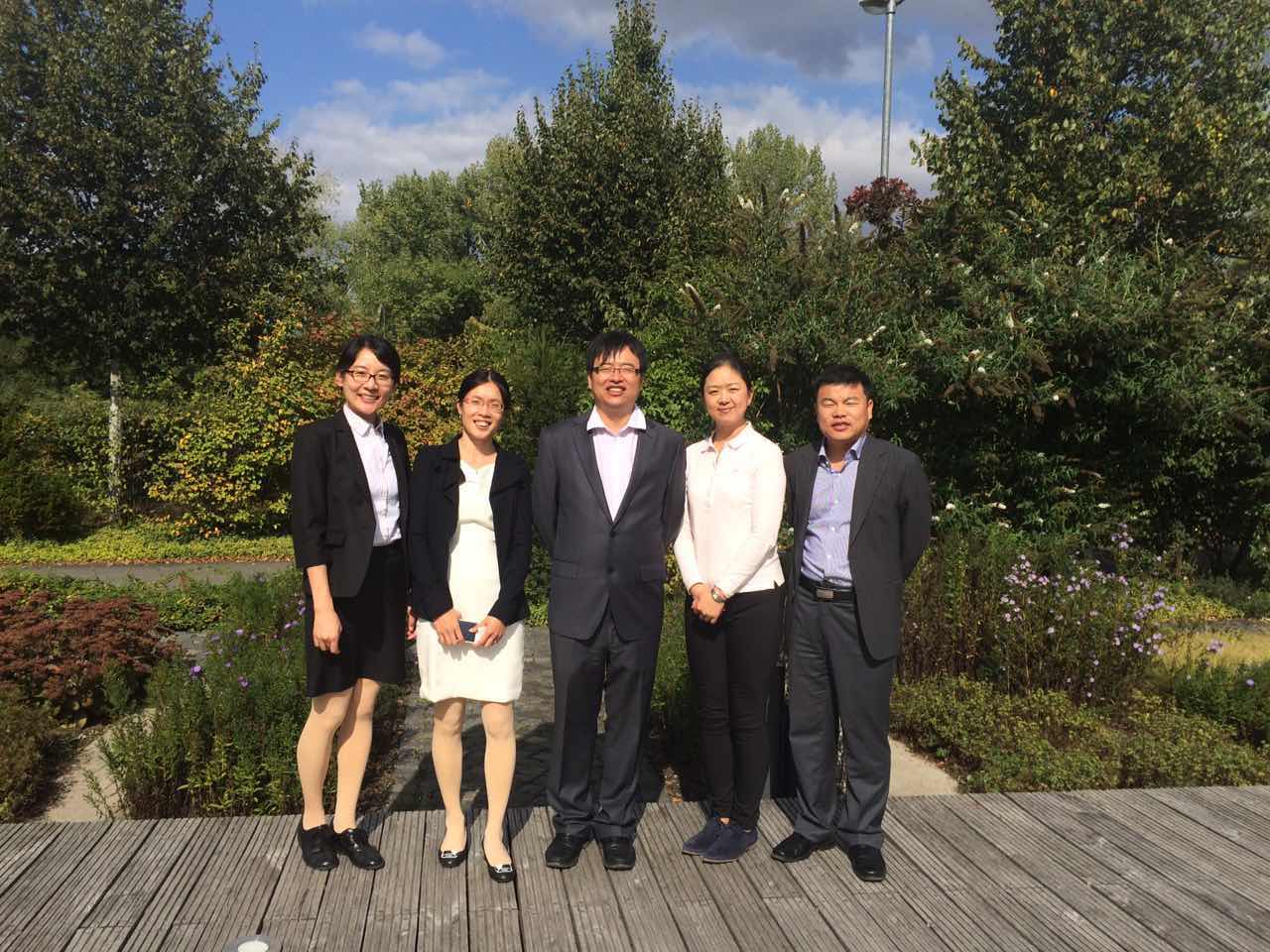
Dhe delegation from CRAES visits UFZ
On 20th Sep. 2016, the workshop with the delegation from Chinese Research Academy of Environmental Sciences (CRAES) took place in UFZ, Leipzig.
During the workshop Prof. Beidou Xi from CRAES (Chief Engineer) conducted his workshop about the research of the Institute of Water Environment and most important results of the ESP SUSTAIN H2O project.
Dr. Jiang talked about the Groundwater remediation technologies:
• Groundwater environmental system source identification and risk assessment, for example, development of non-disturbance sampler.
• Classified prevention and control theory and remediation technology principle of groundwater pollution. For example, pollution classified and sectionalized prevention and control based on the evaluation results of pollution source strength.
• Optimization regulation of groundwater environmental system and technology system of groundwater quality target management.
From UFZ side Mr. Nixdorf hold a presentation about highlighting the OGS Tutorial (Hydro ll):
• Stationary GW-Model
• Transient GW-Model+ Point Pollutants Transport
• Reactive Nitrate Transport Model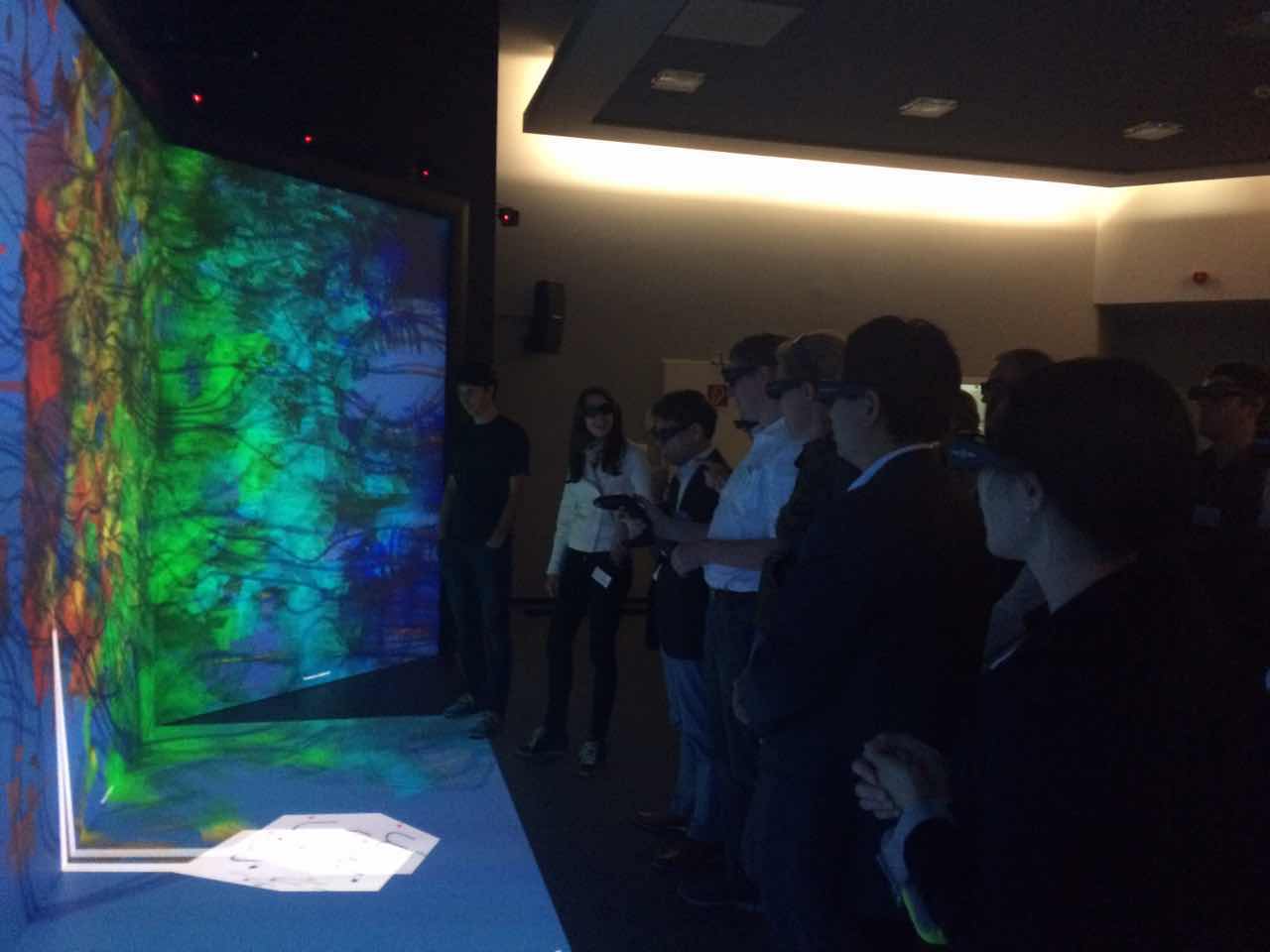 The delegation from CRAES visits VisLab
The delegation from CRAES visits VisLab
In the afternoon, the CRAES delegation visited VisLab (Artificial Vision and Intelligent Systems Laboratory) and admired the Virtual Geographical Environment using modern visualization technology.
Subsequently the future cooperation between UFZ and CRASE was discussed which resulted in identifying future working points in the fields Preparation of the BMBF#MoST Conference “Major Water” and some new project ideas.
Four major points are discussed:
(1) Historical data of Chaohu: this is very interesting to complete the Environmental Information System for Chaohu.
(2) EST SUSTAIN H20 Book: the preparation of the content of the chapter
(3) OGS Training courses: how to find the financial support from both sides
(4) EU-China activities: find out whether UFZ colleagus and CREAS are interesting in the joint topics.
17-18.08.2016: EU Project SUSTAIN HO2 Final workshop in Beijing
The final workshop about the EU project SUSTAIN HO2 took place in 17/18.08.2016 in Beijing. China Research Academy of Environmental Sciences organized this workshop.
20 to 28. Sep. 2015, in Leipzig/Dresden--Workshop of the DFG-NSFC Sino-German Cooperation Group "Poyang Lake Basin"
From September 20 to 28, 2015, DFG-NSFC Sino-German Cooperation Group "Modelling Platform Prototype for Environmental System Dynamics - Poyang Lake Basin" conducted the first workshop in Leipzig/Dresden. As the first outcome of this Sino-German Symposium on Sustainable Water Man-agement and Ecosystem Restorations in Poyang Lake Basin (on 16.12.2014), a joint proposal about “A modeling platform prototype for environmental system dynamics” for Sino-German cooperation group has been approved by Sino-German Center for Research Promotion. The project has officially started from 01.07.2015 and will last for three years.
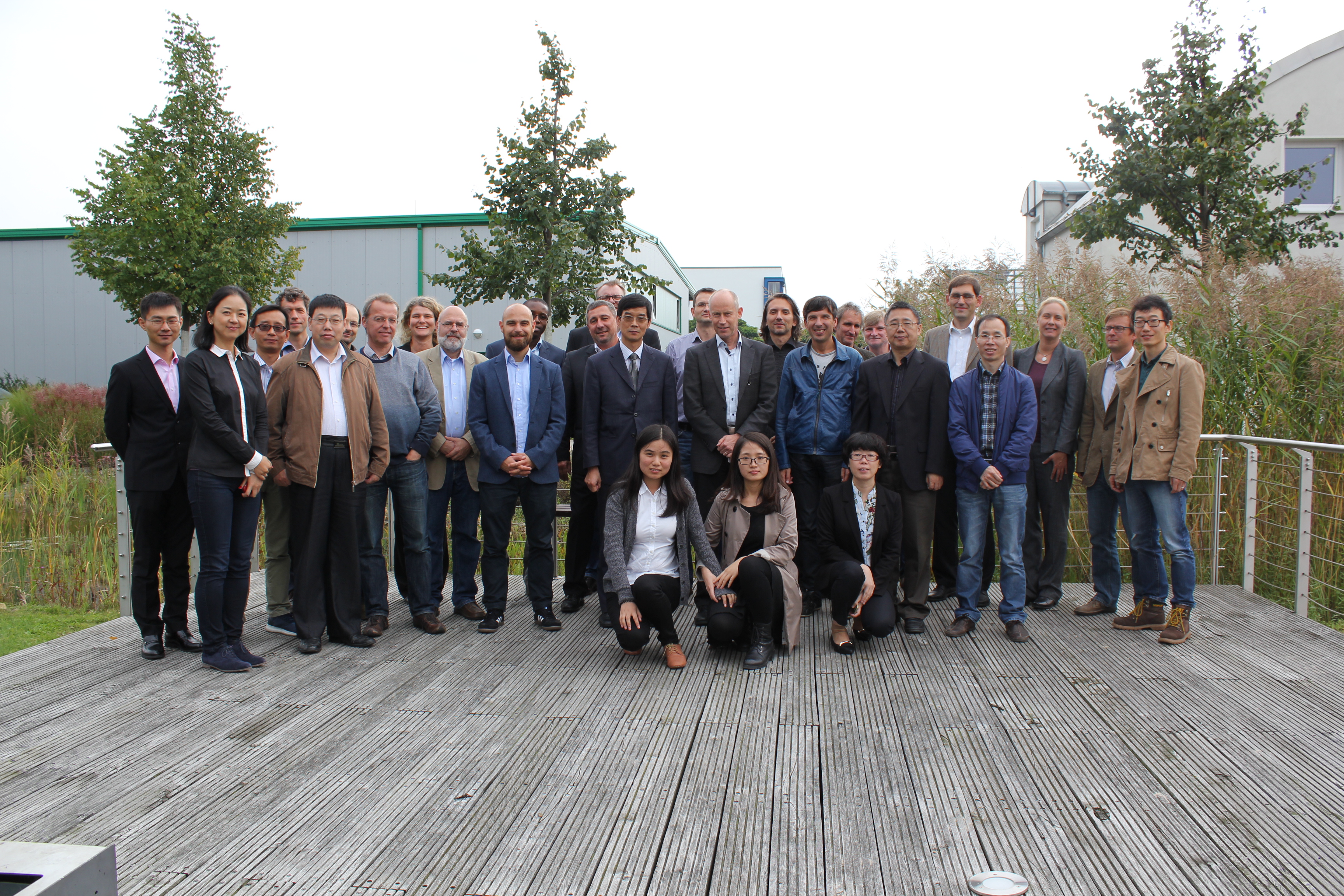 Participants of the 1st Workshop of the Sino-German Cooperation Group in Leipzig/Dresden (20-28.09.2015)
Participants of the 1st Workshop of the Sino-German Cooperation Group in Leipzig/Dresden (20-28.09.2015)
The Chinese participants are representing the Institute of Geographical Sciences and Natural Re-sources Research of the Chinese Academy of Sciences (CAS-IGSNRR), the Mountain-River-Lake De-velopment Committee of Jinangxi Province and the Beijing Normal University. From the German side, UFZ, TU Dresden, TU Darmstadt, CAU Kiel, Hochschule Weihenstephan, DLR and KIT are involved.
During the workshop, the participants successfully developed a proposal concept dealing with the System: Lake -Poyang. The envisaged project is dedicated to gain a better understanding of the sys-tem lake including the analysis of multiple (natural and antropogenic) stresses on aquatic ecosys-tems. The Poyang Lake Basin is selected as the case study for the proposal because of its unique dy-namic nature due to seasonal changes of the water body (lake, river and wetlands). Moreover the Poyang Lake is a unique winter time refugium for many birds species.
The Sino-German Cooperation Group is funded by the German Research Foundation (DFG) and Na-tional Science Foundations of China (NSFC). The funding under grant GZ 1167 workshop is greatly acknowledged. This project started officially from July 01, 2015 and will last for three years. The pro-ject coordinator is UFZ from German side and CAS-IGSNRR from Chinese side.
2nd Workshop on BMBF CLIENT Project “Managing Water Resources for Urban Catch-ments” in Chaohu, China
From May 10 to 12, 2015, the second workshop on BMBF CLIENT Project “Managing Water Re-sources for Urban Catchments” took place in Chaohu, China. "Urban Catchments" is part of the German project cluster within the German-Chinese cooperation to the Mega-Water Program in China. The German project cluster is funded by the Federal Ministry of Education and Research (BMBF) in the area of "International Partnerships for Sustainable Technologies and Services for Climate Protection and the Environment" (CLIENT) under the "Research for Sustainable Development" framework programme.
This project officially started from 01. April. 2015 and will last for three years. During the three-day workshop, the project participants from Germany have met the Chinese coop-eration partners in Chaohu. Chaohu Lake Management Authority has helped to organize the work-shop. From German side, Helmholtz Centre for environmental research in Leipzig is coordinating the whole project. In addition, technische Universität Dresden (Technical University of Dresden) and sev-eral companies are also involved in this project, and they are: AMC – Analytik und Messtechnik GmbH, Chemnitz; bbe Moldaenke, Kiel; Institut für technisch-wissenschaftliche Hydrologie GmbH (itwh), Hanover; OpenGeo- Sys e.V., Leipzig-Kiel and WISUTEC Umwelttechnik GmbH, Chemnitz.
From Chinese side, Chaohu Lake Management Authority (CLMA); Chaohu City; Tongji Uni, Shanghai; Chinese Research Academy of Environmental Sciences (CRAES); Nanjing Institute of Geography and Limnology, Chinese Academy of Sciences (NIGLAS) and Institute of Hydrobiology, Chinese Academy of Sciences, Wuhan have also sent their representatives to join the workshop. One the first day, the German participants have presented their project ideas which are: (A). Urban water management; (B). Decentralized wastewater management; (C). Lake Chao; (D). Environmental information system. The Chinese participants have presented their previous and on-going projects in the Chaohu Lake region. On the second day, the participants have made the field trip to the Chaohu project related places in order to get more detailed information about the problems and current situation in this area.
The workshop was regarded to be very successful and both Chinese and German participants have set up the networks and identified their cooperation partners for their specific project topic. This is really helpful for the future cooperation and for the implementation of the project concept in Chao-hu.
Open Space Workshop „German-Chinese Cooperation in Water and Environmental Information Sciences“
On 17-18, June, 2014, the 5.WRHC (Water Research Horizon Conference) took place in botanical garden, Berlin.
Under this framework, RCEIS has organized an Open Space Workshop on 18. June. 2014.16 participants have joined the Open Space Workshop „German-Chinese Cooperation in Water and Environmental Information Sciences“. Prof. Olaf Kolditz welcomed the participants and gave an overview of BMBF Project Frame Program “Internationale Partnerschaften für nachhaltige Klimaschutz und Umwelttechnologien und –dienstleistungen (CLIENT)” with respect to China. The grand opening of the SEMIZENTRAL - demonstration project in Qingdao on 27, April, 2014 (refer to the presentation of Prof. Cornel on 17.06.2014 at the WRHC 2014) and the kick-off of the Sino-German Innovation Center for program “Clean Water” in Zhangjiang Hi-tech Park in Shanghai on 30. April.2014 were highlighted as unique and new opportunities for the German-Chinese cooperation in water science and technology. The innovation center is managed by Tongji University through association which will be built from research institutions, universities and companies.
Prof. Tian-Xiang Yue from CAS (China Academy of Sciences, Institute of Geographical Sciences and Natural Resources Research) has given a keynote talk about the precipitation change trend and scenarios in China. This keynote talk was an excellent overview on Climate research in China as well. He concluded that the north China would have more precipitation in the future which may affect the strategy of China South-to-North Water Division Project.
Dr. Cui Chen has introduced the International Helmholtz Network - RCEIS (Sino-German Research Center for Environmental Information Sciences) and announced the first RCEIS Workshop about Poyang Lake which would be held in autumn 2014. A joint proposal together with CAS for funding opportunity of the workshop was planned to be submitted to Sino-German Center for Research Promotion in Beijing at the beginning of July, 2014. This workshop shall attract more researchers from Germany and China working in water science.
